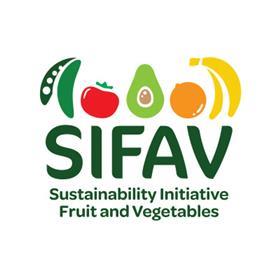
Companies united in the Sustainability Initiative Fruit and Vegetables (SIFAV), as set-up and hosted by IDH the Sustainable Trade Initiative, have launched their new collaborative sustainability strategy for 2025.
The new strategy includes a focus on reducing the environmental footprint across the supply chain for the European market, improving working conditions, wages and incomes, and strengthening due diligence reporting and transparency.
Members of SIFAV include Elbe Fruit, Fyffes, Fair Fruit, Fresh Produce Centre, Nature's Pride, Albert Heijn, Jaguar Fruit, Van Oers United, Berries Pride, Syngenta, FV Seleqt, HPW Fresh & Dry, Fresh Solutions, Colruyt Group, Greenyard, WWF, Eosta, Jumbo, Levarht, Bakker Belgium, Bakker Barendrecht, Special Fruit, Delhaize and Yex.
An online event on 9 March marked the start of the new collective action plan that is in line with the UN sustainable development goals and supports the aims of the EU farm to fork strategy to accelerate the transition to a fair, healthy, and environmentally friendly food system.
The SIFAV partners said they believe collaborative action is essential to successfully address the complex risks and issues faced in their shared fresh fruit and vegetables supply chains. By joining forces, SIFAV believes the companies can achieve more than the sum of their individual efforts.
“As a founding member of SIFAV 2020, we believe sector collaboration is key in structural improvement of sustainable practices”, said Stefanie Vermaesen, senior advisor sustainable business at Nature’s Pride and chair of SIFAV.
“Working together towards a common goal and using shared solutions helps us truly focusing on improving labour conditions and reducing impact on the environment.”
The value of this partnership has proven itself throughout the past 8 years. As a result of the joint effort of the SIFAV Partners, the adoption of third-party social verification rose from 0.7m tonnes of socially verified fresh fruit and vegetables imports in 2013 to 3m tonnes in 2019, coming from 60 different countries.
This leverage will now be used to drive a much broader sustainability agenda and further accelerate progress.
“Together with key partners, both customers and suppliers, we have embarked on a journey towards healthier lifestyles and more sustainable food chains”, said Florens Slob, group sustainability director from Greenyard.
“Only by partnering in the value chain we can achieve our sustainability targets on overarching topics like climate change or water stewardship. As we did with social sustainability over the past years, we are convinced that our cooperation within SIFAV will support our journey and will propel our efforts in being a driving force in building sustainable food chains.”
Under SIFAV, all private sector partners commit to the following sustainability targets towards 2025:
Regarding the environment, members will work together with their supply chain partners to measure and reduce the environmental footprint of priority products by 2025, amongst others.
This includes reducing the carbon footprint of three priority products by 25 per cent. Food loss and waste will also be reduced by 25 per cent in three priority products, and there will be the reduction of water use to best practice levels in three jointly selected catchments.
The implementation of water standards (third-party verification) for 70 per cent of volume from high water risk countries will also be enacted.
In social action, SIFAV has committed to implementing the jointly approved social third-party verification, to at least 90 per cent of volume coming from high- and medium-risk countries by 2025.
Members will also take the first step in improving living wages or living income by analysing living wage and living income gaps in one of their supply chains and if possible, also making a commitment towards reducing these gaps.
Regarding human rights and due diligence, SIFAV will implement robust human rights and environmental supply chain due diligence policies and processes according to OECD and UN Guidelines.
Members will also jointly and individually report on the risks and progress on an annual basis from 2022 onward.
Stefan Goethaert, director private label from Colruyt Group said the time was right to launch the 2025 strategy and to reach out to the sector to join forces.
“Sustainability is part of our DNA. As a retailer, we are fully aware of the important position we hold in the value chain: by offering sustainable products, we make a positive difference, together with our customers,” said Goethaert.
“In order to structurally address challenges in the global fruit and vegetable sector, cooperation with suppliers, fellow retailers and other stakeholders is necessary.
“That’s why we believe in SIFAVs collaborative, action-oriented approach and hope that more key players in the sector will join and help us drive change,” he concluded.



